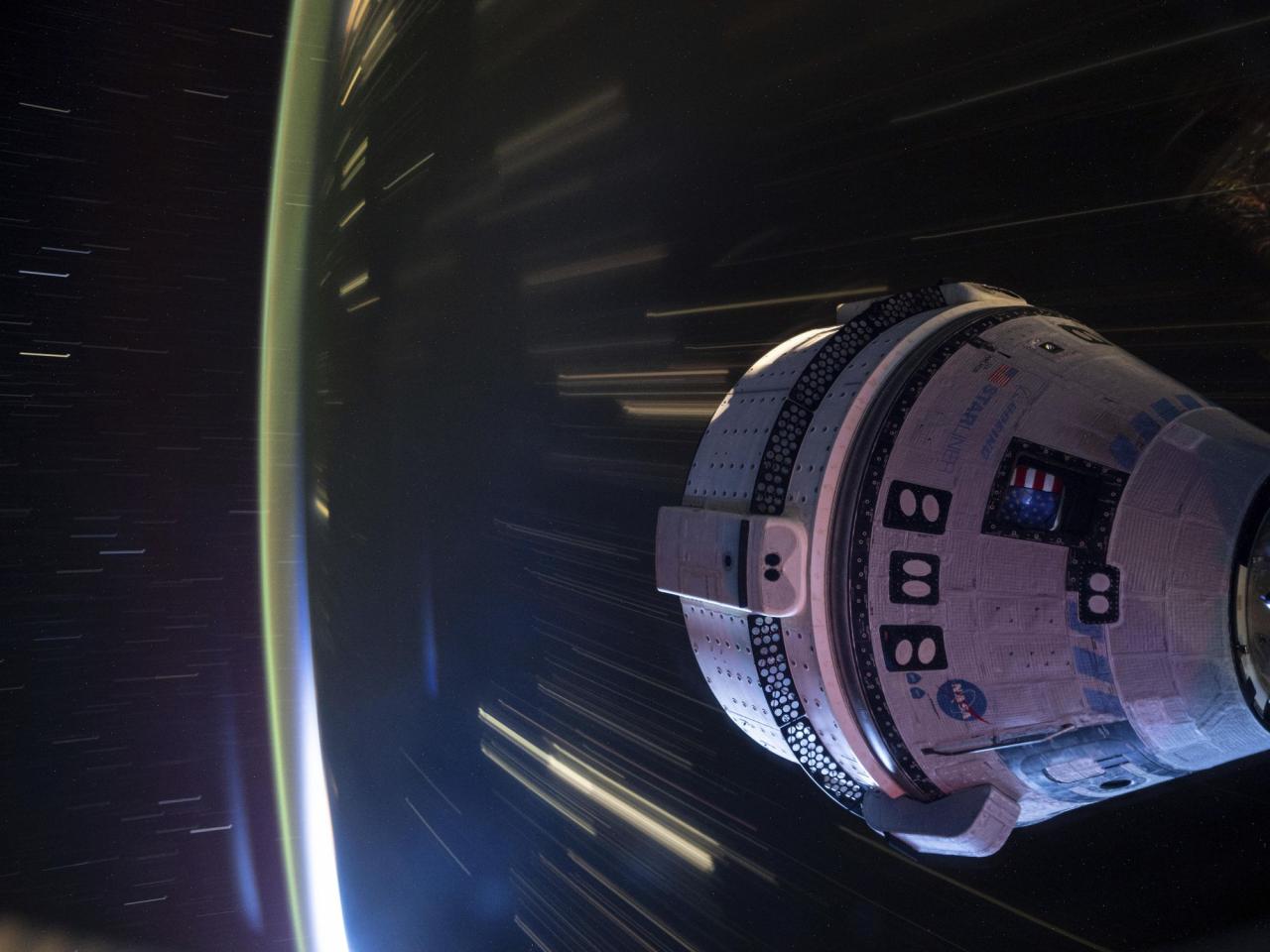Boeing will fly its empty capsule back to Earth soon. Two NASA astronauts will stay behind
CAPE CANAVERAL, Fla. (AP) — Boeing will attempt to return its problem-plagued capsule from the International Space Station later this week — with empty seats.
NASA said Wednesday that everything is on track for the Starliner capsule to undock from the space station Friday evening. The fully automated capsule will aim for a touchdown in New Mexico’s White Sands Missile Range six hours later.
NASA’s two stuck astronauts who flew up on Starliner will remain behind at the orbiting lab. They’ll ride home with SpaceX in February, eight months after launching on what should have been a weeklong test flight. Thruster trouble and helium leaks kept delaying their return until NASA decided that it was too risky for them to accompany Starliner back as originally planned.
“It’s been a journey to get here and we’re excited to have Starliner return,” said NASA’s commercial crew program manager Steve Stich.
NASA’s Butch Wilmore and Suni Williams will close the hatches between Starliner and the space station on Thursday. They are now considered full-time station crew members along with the seven others on board, helping with experiments and maintenance, and ramping up their exercise to keep their bones and muscles strong during their prolonged exposure to weightlessness.
To make room for them on SpaceX’s next taxi flight, the Dragon capsule will launch with two astronauts instead of the usual four. Two were cut late last week from the six-month expedition, which is due to blast off in late September. Boeing has to free up the parking place for SpaceX’s arrival.
Boeing encountered serious flaws with Starliner long before its June 5 liftoff on the long-delayed astronaut demo.
Starliner’s first test flight went so poorly in 2019 — the capsule never reached the space station because of software errors — that the mission was repeated three years later. More problems surfaced, resulting in even more delays and more than $1 billion in repairs.
The capsule had suffered multiple thruster failures and propulsion-system helium leaks by the time it pulled up at the space station after launch. Boeing conducted extensive thruster tests in space and on the ground, and contended the capsule could safely bring the astronauts back. But NASA disagreed, setting the complex ride swap in motion.
Starliner will make a faster, simpler getaway than planned, using springs to push away from the space station and then short thruster firings to gradually increase the distance. The original plan called for an hour of dallying near the station, mostly for picture-taking; that was cut to 20 or so minutes to reduce the stress on the capsule’s thrusters and keep the station safe.
Additional test firings of Starliner’s 28 thrusters are planned before the all-important descent from orbit. Engineers want to learn as much as they can since the thrusters won’t return to Earth; the section containing them will be ditched before the capsule reenters.
The stuck astronauts — retired Navy captains — have lived on the space station before and settled in just fine, according to NASA officials. Even though their mission focus has changed, “they’re just as dedicated for the success of human spaceflight going forward,” flight director Anthony Vareha said.
Their blue Boeing spacesuits will return with the capsule, along with some old station equipment.
NASA hired Boeing and SpaceX a decade ago to ferry its astronauts to and from the space station after its shuttles retired. SpaceX accomplished the feat in 2020 and has since launched nine crews for NASA and four for private customers.
___
The Associated Press Health and Science Department receives support from the Howard Hughes Medical Institute’s Science and Educational Media Group. The AP is solely responsible for all content.
Source: wral.com
